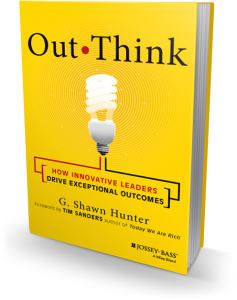The Secret is to be Valuable not Successful
On July 17, 1981 in a Hyatt Regency in Kansas City MO, two skywalks weighing over 70 tons collapsed on a party below, killing 114, injuring 216, and trapping many others for up to seven hours while rescuers tried to reach them under the rubble.
The skywalk collapsed because there was a flaw in how the walkways were hung from the structural frame of the building. However, the project engineer had formally written in his reports that the design had been checked for structural integrity. In truth, engineering contractors failed to follow the formal design-review process. In other words, they built without conscientiously reviewing the plans.
It gets worse. Seven weeks before scheduled completion, a worker noticed the top walkway was deformed and reported it to the architect’s on-site representative. The report was ignored. It probably would have been expensive and time-consuming to review. Within the following months two more observations, and reports, were made that the walkway was structurally deformed. Both reports were discounted and ignored.
This is what happens when somewhere in the line of communication, people fail to act. Maybe because they can’t be bothered, because they don’t care, or perhaps because in the cacophony of information and noise in our work, they simply fail to see disaster waiting.
Everyone has a boss. Everyone. You report to the Regional VP, who reports to the North American VP, who reports to the COO, who reports to the CEO, who reports to the Chairman of the Board, who reports to his wife.
Being a successful leader is more about the behavior of your followers. So the real question is: how do we build successful followers? How do we build successful followers who are confident and assertive in speaking the truth?
Strive not to be successful in the eyes of those around you, but valuable to those around you.
When I was a teenager I worked at a greenhouse, and had a boss who gave vague instructions like, “Go water the plants.” That’s pretty non-specific in a nursery which covers five acres. So I would disappear and go water plants for several hours never knowing how much water to give, or which plants required more or less water. In addition to the lack of direction, I found the whole thing pretty boring. I lasted about six weeks before I quit. I never questioned what I was doing or why.
When Suggestions Become Orders
Failure to speak truth to power can carry immense consequences. In an interview with Sue Mahony, President of Eli Lilly Oncology, she described one of the blindspots that leaders develop as they climb into higher and higher echelons of the company is that often people become increasingly unlikely to provide honest feedback to senior leaders. What happens instead is that suggestions become orders.
Lead With Questions
Sue described how she is very careful about making suggestions in meetings, and instead leads with questions. She composes questions that rely on the strength of the team members and allow their expertise to shine. Questions such as, “What would happen if we made this decision?” “What are the technical considerations if we build this?”
Have Listening Tours
Sue is responsible for almost two thousand people. Mis-information and poor behavior can cascade easily without her knowing it. Often, she seeks out individuals on her team to have “listening sessions.” In these meetings, her only goal is to find what people around her honestly think, care about and prioritize. Then she thanks them.
Get Closer to the Impact of the Work
Sue did admit that in the field of cancer drug research it is pretty easy to get team members excited and driven in their work. After all, their goal is to alleviate, or even cure, some forms of cancer. But Sue also admitted that in their day to day work, it’s also easy to build petty squabbles and get exhausted in the mundane.
Which is why Sue works to regularly remind people of why they are there. Real life people currently suffering, and recovering, from different forms of cancer specific to their work, are brought in to tell their story. And their story is not always about the nature of the disease itself, but also about the human side. When the researchers on Sue’s team hear about the human impact, it unites their sense of purpose and focus.
- Join my Email updates for regular updates on leadership and life
____________________________________________________

Twitter: @gshunter
Say hello: email@gshunter.com
Web: www.shawnhunter.com




